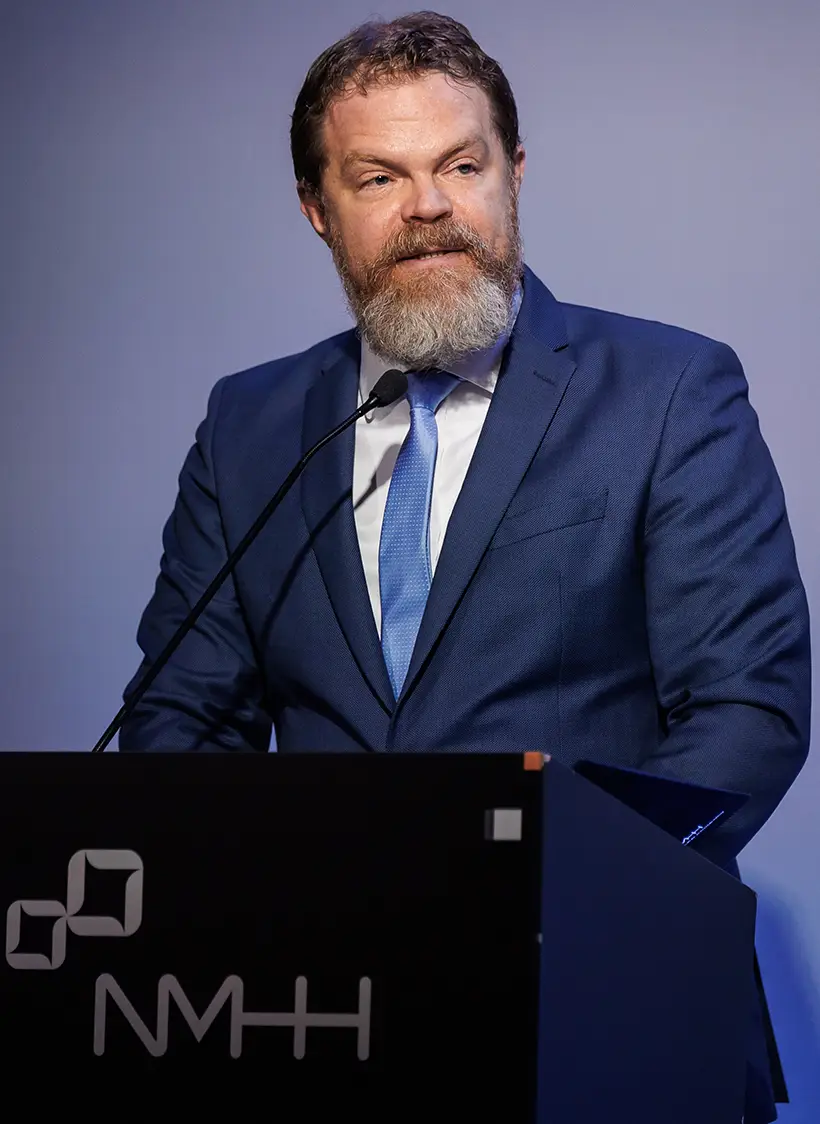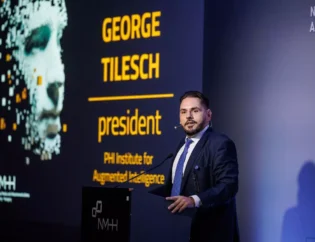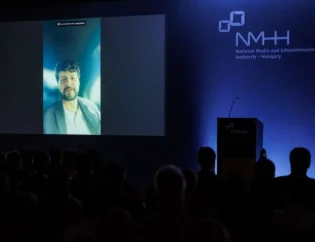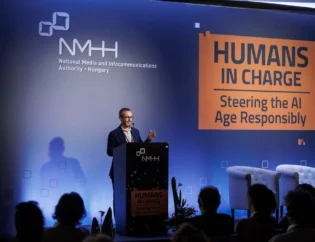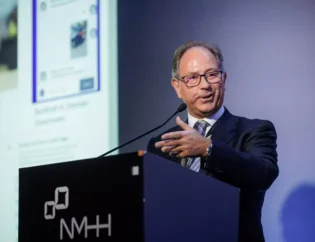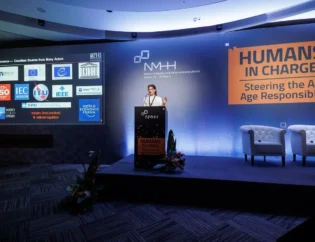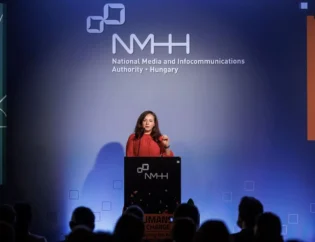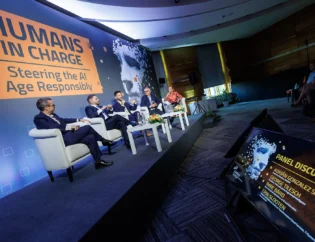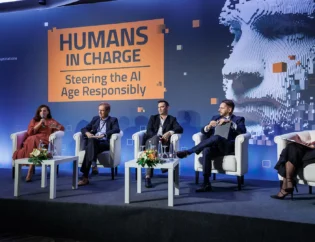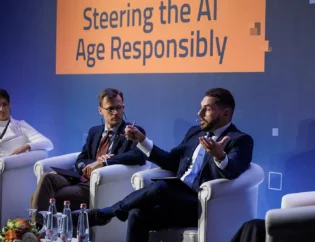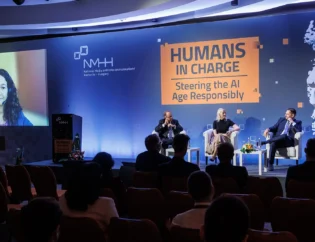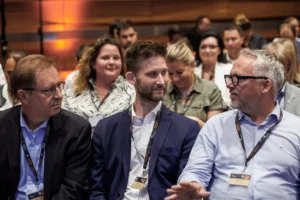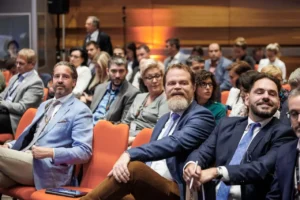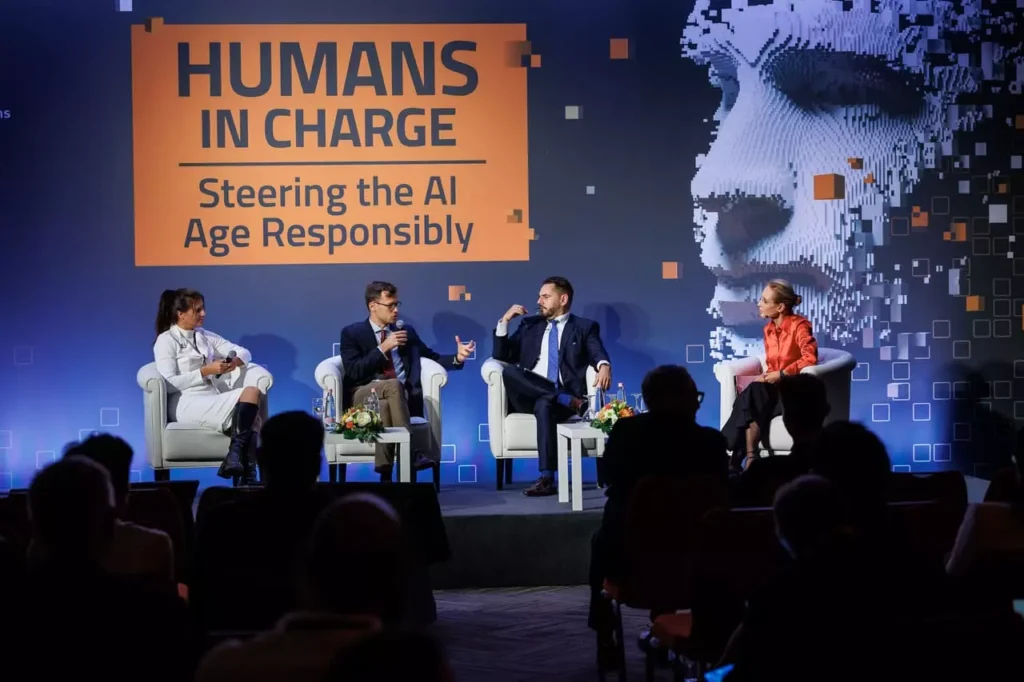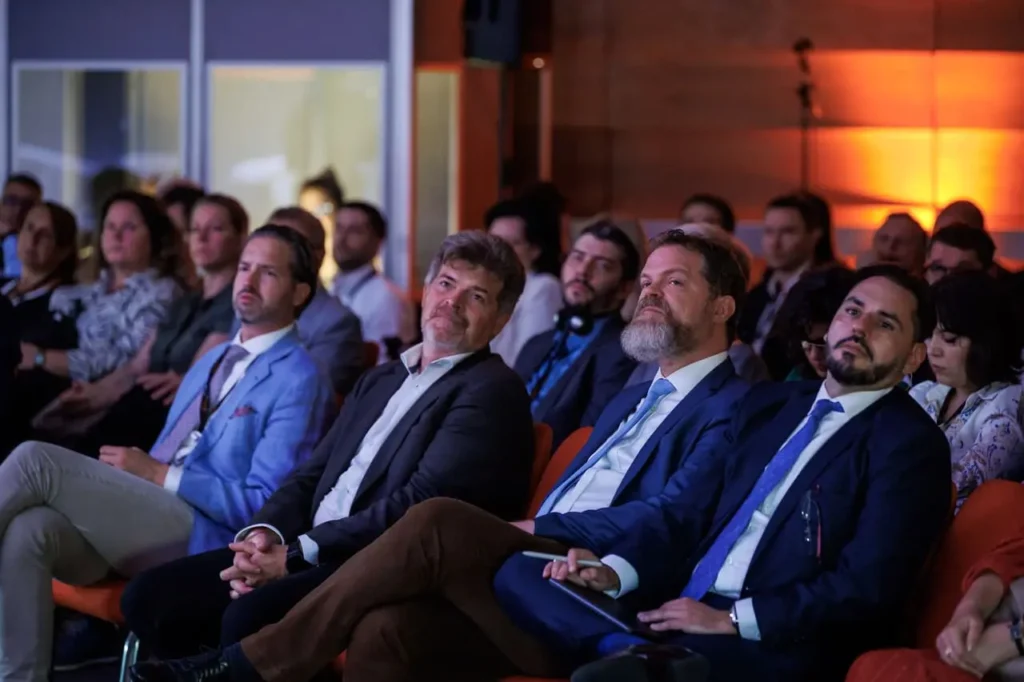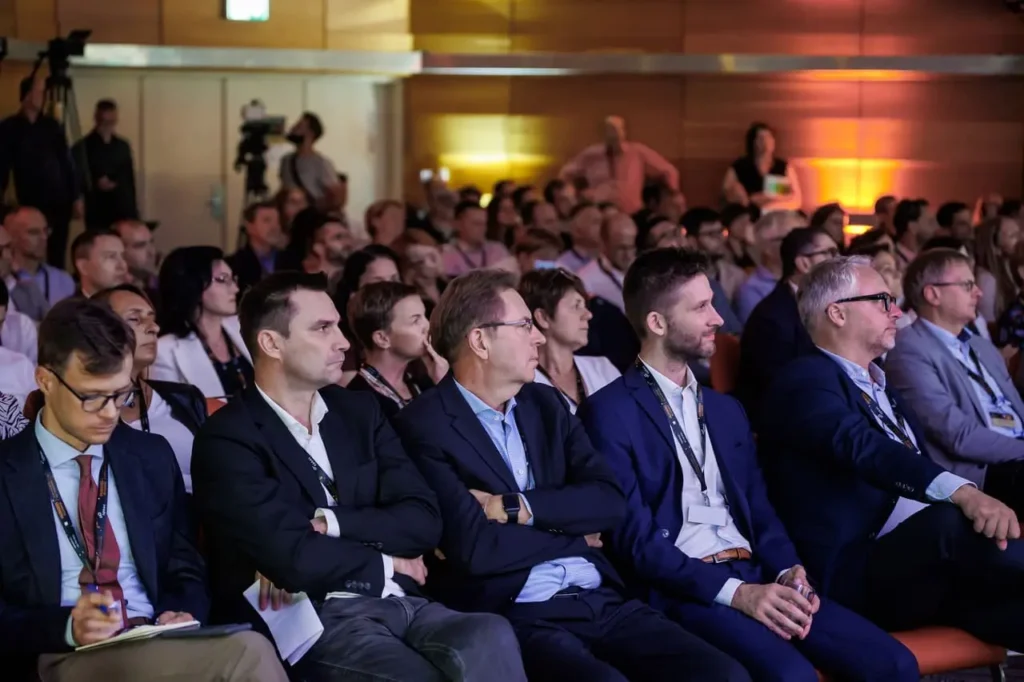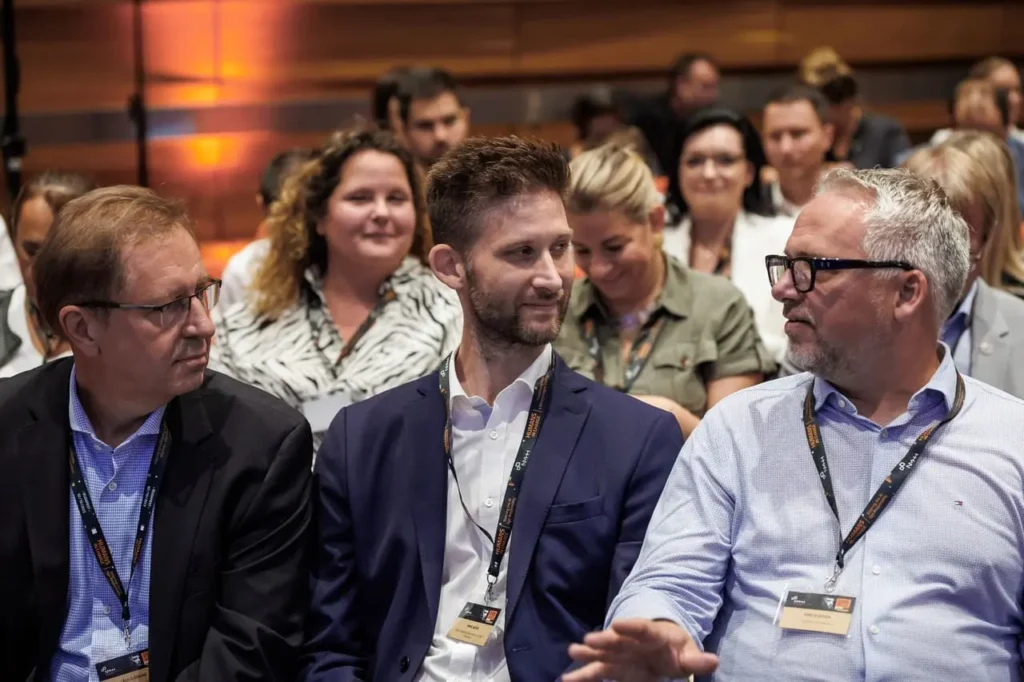Dr. András Koltay: In the age of AI, researchers, developers and decision-makers need to cooperate
Society has by now become aware of the opportunities and risks associated with the rapid advance of artificial intelligence (AI), the President of the host National Media and Infocommunications Authority (NMHH) told in his opening speech at the Humans in Charge conference. According to Dr. András Koltay, generative AI technology has perhaps had the greatest impact on the media, but there is a “dark side” to its use. He stressed the need for researchers, developers and decision-makers to cooperate in the development and the responsible and ethical use of the technology.
Is artificial intelligence intelligence?
Although it may seem that AI understands us, its decisions are based on mathematical models and it lacks real intelligence – Dr. András Koltay noted in his keynote speech at the conference “Humans in Charge – Steering the AI Age Responsibly”.
“The most advanced and complex imitation machine ever built by mankind, equipped with capabilities that seem almost magical in the eyes of society. (...) It holds up a mirror and asks us what our core values are, what we hold important, what we want to preserve, what the patterns, rules and laws are that we want to follow in the future?” the President of the NMHH remarked adding that AI was also a new tool of planning the future, bringing a paradigm shift, i.e. changing the zeitgeist.
He spoke about the importance of innovation whereby AI can be used to improve the quality of life, human efficiency and creativity. His examples included self-driving cars, diagnostic and health advice systems.
At the same time, he drew attention to the growing challenges and the importance of giving the right answers to these challenges.
Artificial intelligence and the law
The President of the NMHH pointed out that human values, data protection and the responsible use of technology were all areas that were affected and increasingly defined by this technology.
“Therefore, jurisprudence must look in this mirror. Will it (AI) change, and if so, to what extent and in what direction traditional legal approaches, areas, the way law works or even its social validity? What are the potential problems and dangers of this generativity, and what new approaches to data protection, risk and liability are needed?” he asked and continued to raise further questions that were yet to be answered:
- How can we guarantee the protection of data?
- What ethical standards are needed for the development and use of artificial intelligence?
- How can we ensure that technology remains accessible and equitable for all?
The impact of artificial intelligence on the media and the perception of reality
“The revolution of systems powered by generative artificial intelligence has perhaps hit the media world hardest, and the pressure is growing,” he pointed out. “The new models enable an interactive and dynamic conversation experience. Algorithms can be used to create huge amounts of text, moving images, interaction, reaching new levels of personalised reality.”
“But there is also a dark side: deepfake technologies are destroying the trust in digital reality. Fake news and misleading content fundamentally distort our perception of reality, threaten our information integrity and make us doubt. It is becoming increasingly difficult to distinguish between the real and the virtual, and because of their effect on us, we can easily lose the ability to identify reliable sources,” the NMHH President said adding that artificial intelligence seemed to be changing the way the media market worked.
He expressed his conviction that researchers, developers and decision-makers must collaborate to develop the technology and apply it responsibly and ethically.
“AI has a huge potential: it can help us find solutions to the challenges we face, be it climate change, healthcare or education. AI is not some external, distant entity but a part of our everyday lives, and we are all responsible for making the most of it,” Dr. András Koltay concluded.
This speaker
András Koltay
President, National Media and Infocommunications Authority
András Koltay is a lawyer, professor at the University of Public Service and the Pázmány Péter Catholic University.
He obtained his LL.M. (Master of Law) degree from University College London in 2007, prior to that he also studied at the International Institute of Human Rights in Strasbourg.
Between 2010 and 2019, he was a member of the Media Council of the NMHH.
Since 2016 he is a member of the Public Body of the Hungarian Academy of Sciences, and since 2017 a member of the Legal and Ethics Committee of the Hungarian Paralympic Committee.
He has more than 400 scientific publications in Hungarian and in English.
More speakers


Axente



Erdelyi






Misuraca



Kriisa



Tilesch



Drajkó



Porkoláb



Halmos



Slooten



Bárd



Juhász



Benifei



